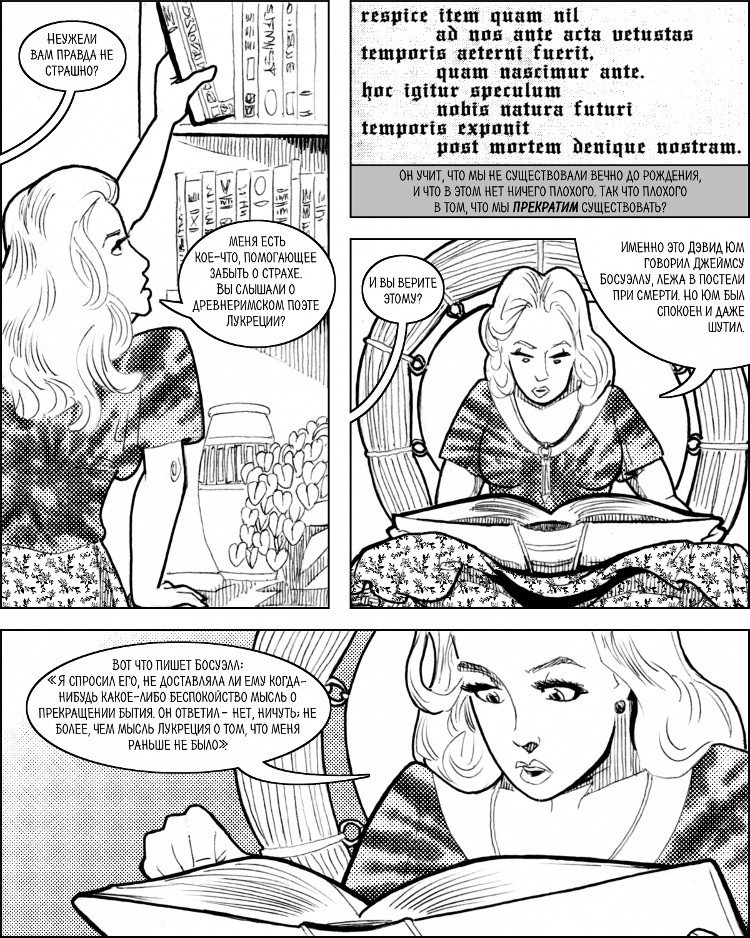

This work is licensed under a Creative Commons Attribution-NonCommercial-ShareAlike 4.0 International License.
PAGE 10 (Four panels)
Panel 1: Still in the same apartment where the interview is taking place, but Eliza is now on tiptoes taking a heavy book down from a a high shelf.
Unseen interviewer (1): Seriously, aren’t you afraid?
Translation (1): Неужели вам правда не страшно?
Eliza (2): I have something to make the fear go away. Have you heard of the Roman poet Lucretius?
Translation (2): У меня есть кое-что, помогающее забыть о страхе. Вы слышали о древнеримском поэте Лукреции?
Panel 2: Close-up around some text, the following lines from Lucretius’s De rerum natura, set in a very old typeface or (better if possible) as medieval manuscript: “respice item quam nil ad nos ante acta vetustas/temporis aeterni fuerit, quam nascimur ante./hoc igitur speculum nobis natura futuri/temporis exponit post mortem denique nostram.”
CAPTION – ELIZA NARRATING (3): He explains that we didn’t exist for an eternity before being born, and that wasn’t bad. So why should it be bad once we stop existing?
Translation (3): Он учит, что мы не существовали вечно до рождения, и что в этом нет ничего плохого. Так что плохого в том, что мы прекратим существовать?
Panel 3: Eliza, now sitting cross-legged in her big wicker chair. She has the large book she brought down in Panel 1 resting open on her lap. She’s pointing down at something on a page.
Unseen interviewer (4): And you buy that?
Translation (4): И вы верите этому?
Eliza (5): It’s what David Hume told James Boswell as Hume was wasting away, about to die. But Hume was calm and even told jokes.
Translation (5): Именно это Дэвид Юм говорил Джеймсу Босуэллу, лежа в постели при смерти. Но Юм был спокоен и даже шутил.
Panel 4: Eliza looking down at the page of the book open on her lap, reading.
Eliza (6): From Boswell’s account: “I asked him if the thought of annihilation never gave him any uneasiness. He said not the least; no more than the thought that he had not been, as Lucretius observes.”
Translation (6): Вот что пишет Босуэлл: «Я спросил его, не доставляла ли ему когда-нибудь какое-либо беспокойство мысль о прекращении бытия. Он ответил – нет, ничуть; не более, чем мысль Лукреция о том, что меня раньше не было».
![]() Приманка (русский язык/Версия с длинной страницей)
Приманка (русский язык/Версия с длинной страницей)
Приманка (русский язык/Слайдер-версия)
